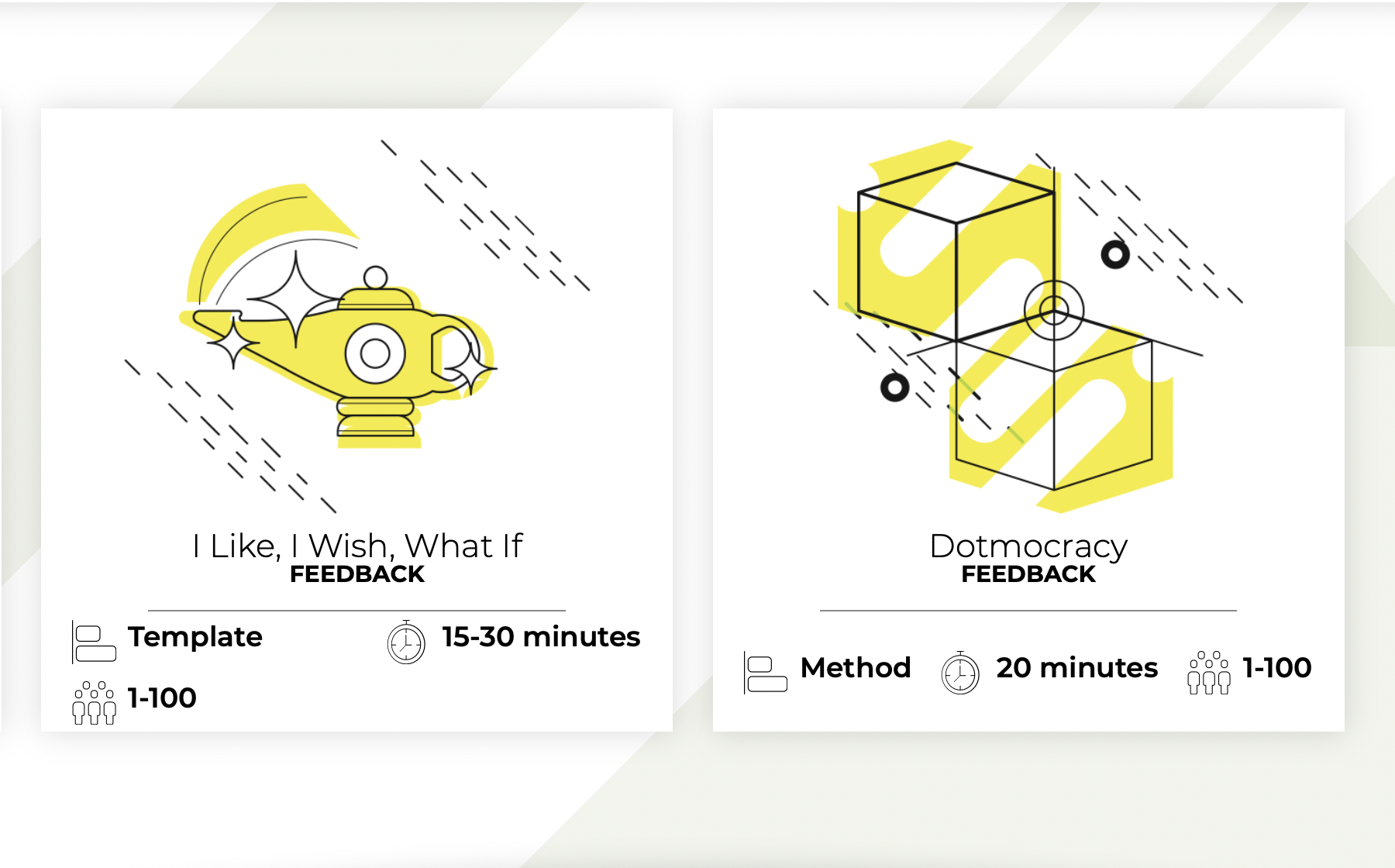
There are numerous websites that offer tools to evaluate, monitor, set up and co-create your research, and much more. We have selected a few sites for you that offer convenient and useful tools (or toolkits) to help you design your research even better. This is a preliminary selection.
Evaluation
A lot of information about evaluating research can be found online. Bettervaluation.org is a site with descriptions of different forms of evaluation, such as evaluation before, during or after the research process – and evaluation focused on process or focused on impact. Not only does the site describe the different methods, but it also explains how to use evaluation and how to report on it in your research. The site describes some 300 methods and processes of evaluation. Bettervaluation is an international non-profit organisation.
https://www.betterevaluation.org
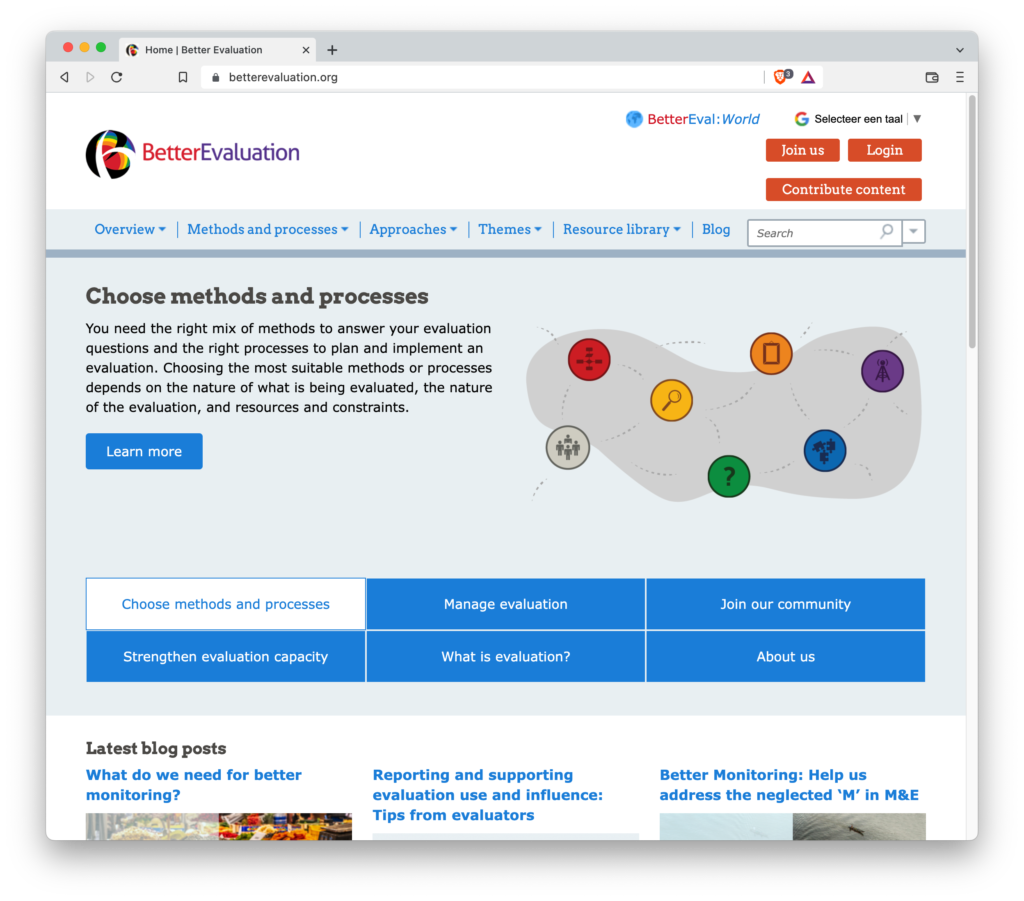
Co-creation
Unalab, a European project which prepares cities for the effects of climate change, offers a comprehensive toolkit for researchers who want to apply co-creation. The project involves various parties, such as research institutes, consultancies and municipalities. They conduct research and provide advice on applying nature-based solutions and measuring and predicting climate change impacts. They also think about ways to brainstorm, experiment and discuss the topic with groups of people. A comprehensive database has been developed for this purpose, which provides tools for co‑creation with citizens and other stakeholders. Users can search by tools that can be used for analysis, generating ideas, strategy, experiments and feedback, filtered on time duration and which methods they can use for their research.
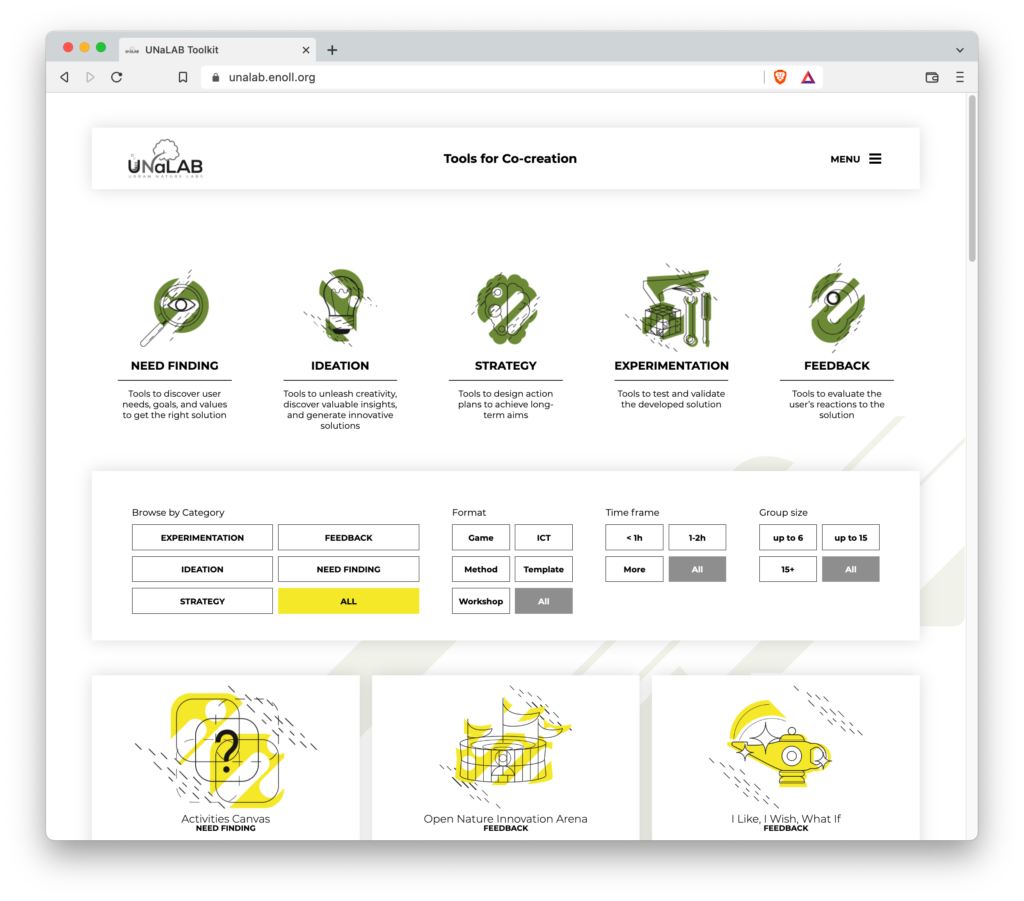
Innovation
Twente University’s CTA Toolbox provides tools for technical research and innovation projects. These constructive technology assessment tools make it possible to identify the different economic, social, ethical and legal implications of your research early on in the process. For example, actor analysis helps identify the people and parties who will be affected – directly or indirectly – by your research or innovation. Scenarios give an idea of the social and ethical issues that may influence technological development or what impact your innovation could have on society. The toolbox gives tips on how to use the different tools, the timeframe, the parties involved and shows examples that have been elaborated.
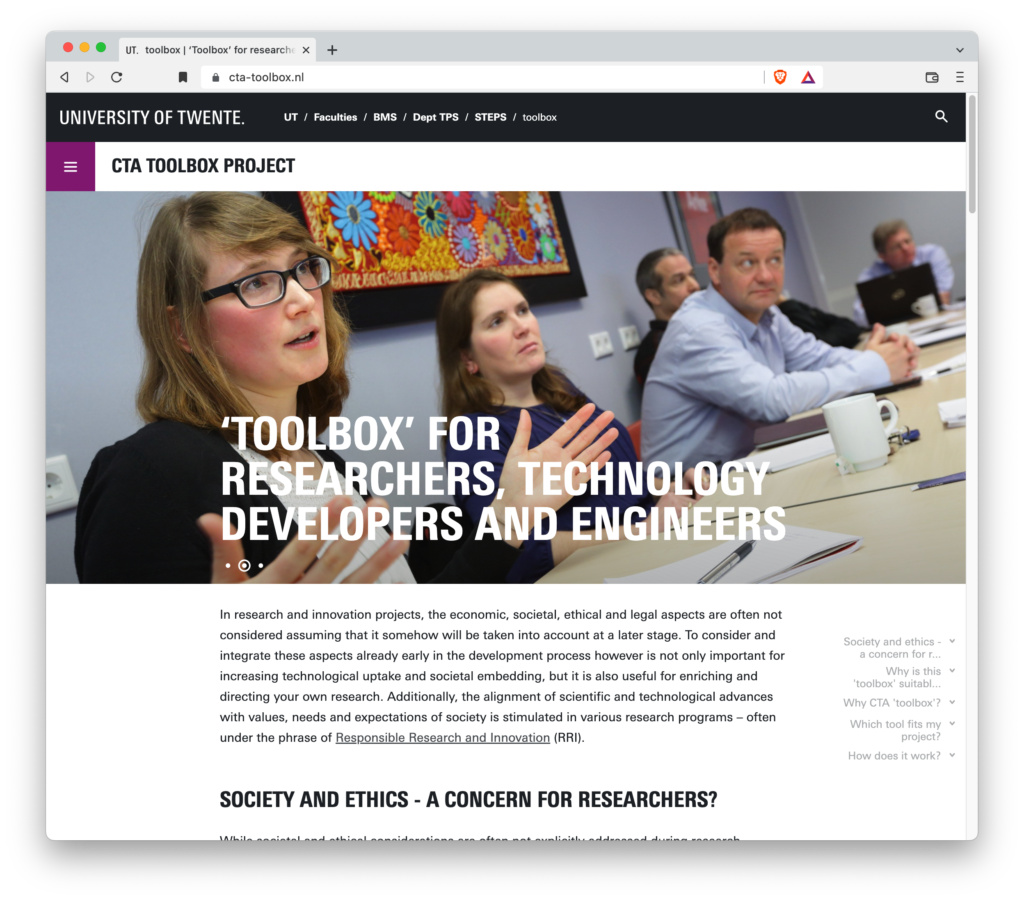
Development toolkit
Nesta, a UK non-profit organisation dedicated to promoting social innovation, has developed a toolkit with methods, templates, and exercises to foster that innovation. The focus is not only on organisational, technological and social innovation, but also on personal development. Not all tools are of equal interest to researchers, but that is easily filtered out on the site. According to the site, the methods offered are the highest rated of their kind.
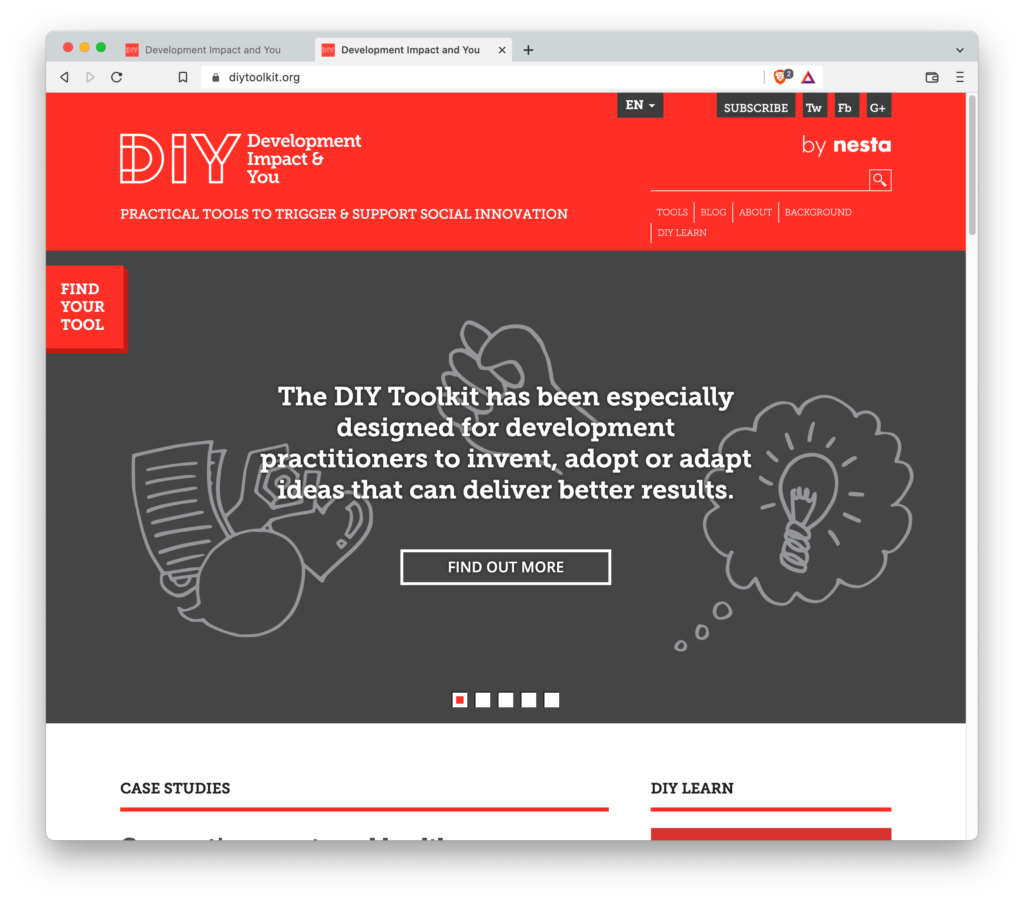
Esther Tielen & Harry van Vliet
